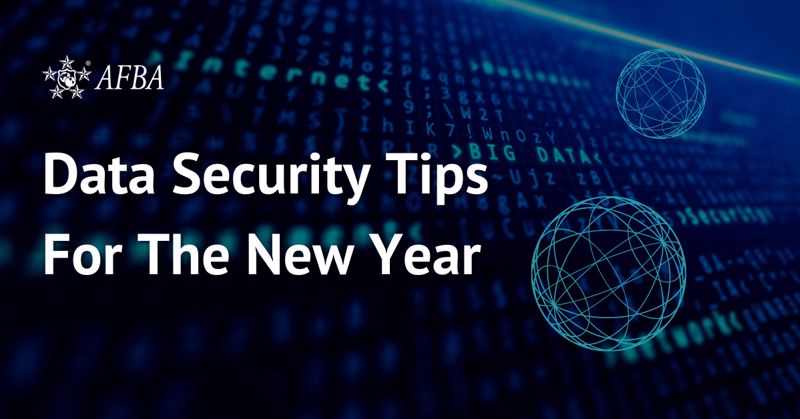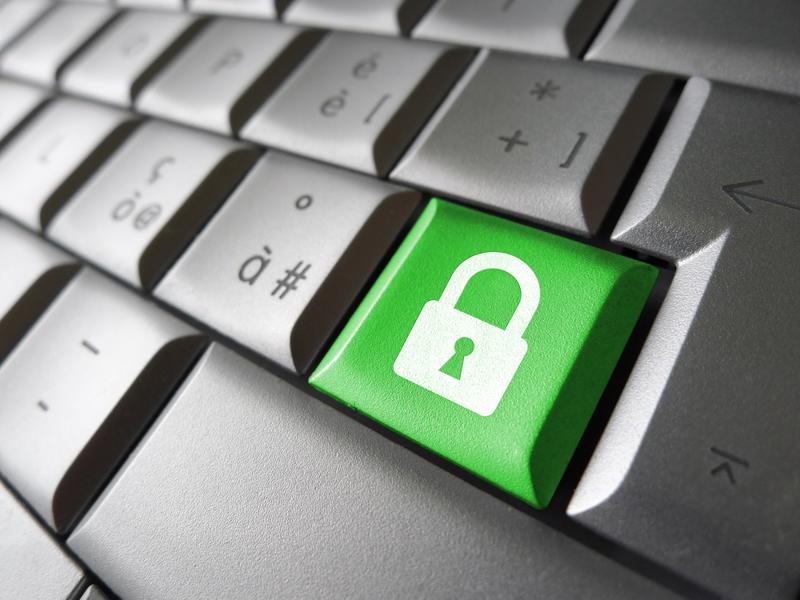With so much of our everyday lives being completed online, your personal information could be vulnerable if you don't know how to protect it from would-be cybercriminals. From online banking to payments and shopping, there are thousands of ways for a potential data breach to happen. Here are some of the best tips to up your data security for the new year.

1. Don't save your payment information online
It is likely that if you buy things online, there is probably a website that you frequent because the shop has products that you know and like. Because of this, there is usually the option to save your debit or credit card for easier checkout. Sounds convenient and easy, right? While that may be true, going with an autocomplete option may not always be the safest. Even if you are shopping online from a reputable company, be aware that big retailers are not immune to hackers.
Cyber attacks are becoming more frequent and as security software innovates, online criminals adjust accordingly. Popular e-commerce hosts like Shopify and Magento have high-level security in place to protect their user's data, but accidents still happen. The best way to protect yourself from becoming a victim of an online criminal attack is to manually enter your card information every time.
2. Use a virtual private network
A good way to protect yourself is to use a virtual private network or VPN. This is especially true if you spend any amount of time using public wifi networks when transferring important personal data. This is because public internet connections are not as secure as your personal network. Hackers can easily spy on other people who are using the connection to purchase products online. A VPN makes sure that your data and personal information is secure, regardless of where you are, digitally. According to the service Surfshark, 31% of internet users protect themselves using a VPN.
Without a VPN, you leave yourself vulnerable to attacks. If you access your online bank account, input card information or do other personal activities using a public or shared internet connection, consider spending the small monthly fee to protect your personal data. If you are a frequent traveler, this extra layer of protection is well worth it.
3. Avoid phishing scams
Watch out for convincing phishing scams, which are far more intelligent than they used to be. A common method is through email or through a bogus internet ad. Before clicking anything or giving out any of your personal data, think twice. Ask yourself if it is coming from a reputable website or retailer and why they want this information. Another trick is to hover over the sender field so you can see the entire email address. Many spoof senders will have a combination of unique characters vs a qualified business name.
Remember, the majority of companies sending emails will not likely request financial information or include forms for sensitive information without you having previously requested it, or without the assistance of a secure document sharing program. If a random request like this hits your inbox, it's likely bogus! And if you aren't sure, it never hurts to give the customer service phone number a quick call to verify. Companies are often grateful to be made aware of scams and can keep track of specifics scams if a high number of users report similar experiences.
4. Change passwords frequently
We all have that one trusty password that we use for everything because it is so easy to remember. However, it is important to change your passwords every so often, especially for important things like your bank account, credit card or any other personal information on the web. According to electric.ai, you should change your passwords every 3 months. This will reduce the possibility that a cybercriminal will be able to hack into your data. It is important to make sure that you do not have the same password for more than one account. This adds another layer of protection to safeguard your personal information.

